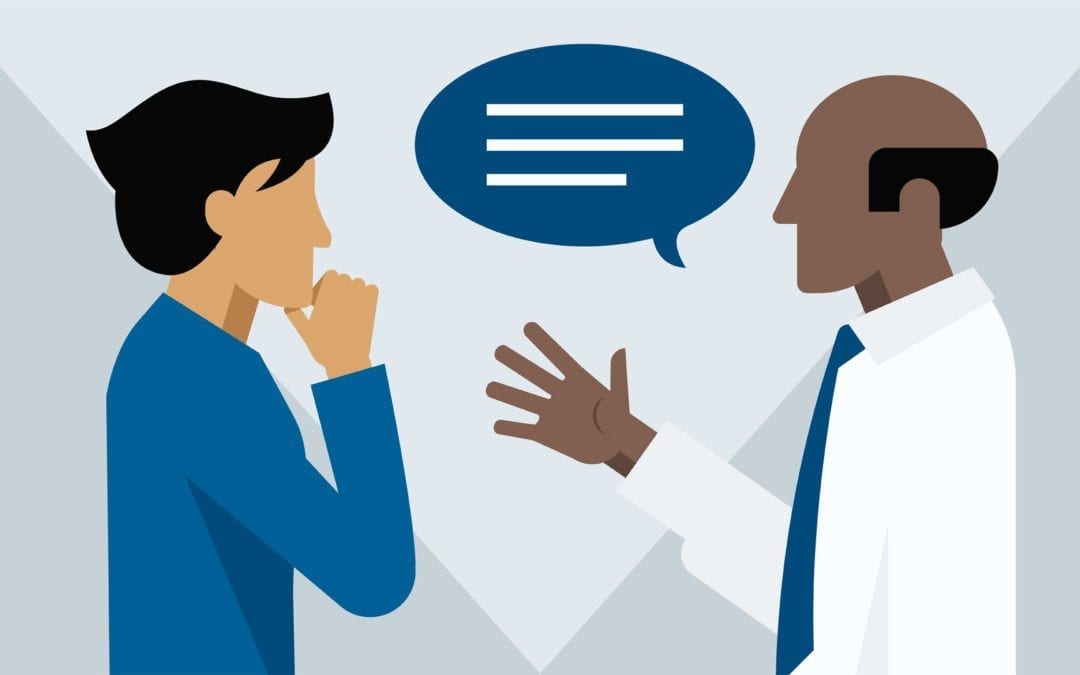Are you a good listener? Much as we may hate to admit it, most of us are not.
We get frustrated easily when others are not fully listening to us, yet we don’t often turn those same expectations on ourselves. We all come into conversations with our own preconceived opinions and agendas, our low attention spans, and our heads buzzing with the events and thoughts of the day. It’s harder than it may seem to slow it down and actually listen fully.
The average human has an attention span of about 8 seconds. You have to actively work to keep your focus on what someone is saying to you. But good listening is more than just paying attention. It’s about being present in the moment, focused on the person you’re talking to, and mindful about how you yourself are interacting.
Good listening skills can help you:
- Build better relationships
- Learn more information
- Be a better leader
- Be a better friend, spouse, teammate
- Handle conflict more effectively
- Gain more respect
- Facilitate self-improvement
- Enhance the way people listen to you
- Save time and increase efficiency
Here are some tips and techniques to help you become a better listener.
- First and foremost, be present. Be focused on the moment. Commit to the conversation.
- Be receptive, open, and willing to learn new information. Approach the conversation as an opportunity to learn and grow vs. time you are reluctant to lose, or a situation you have to endure.
- Set your agenda and your ego aside. Go into the conversation focused on learning vs. convincing, manipulating, or “winning”. Look at it as a two-way event instead of a one-way experience.
- Signal your willingness to listen. Put your phone down. Close your book. Turn off the TV. Look the other person in the eye. Unfold your arms. These are all signals that you’re ready and willing to listen.
- Don’t listen solely for the opportunity to talk or interrupt. That’s not real listening.
- Don’t listen just to be polite as if you’re waiting for them to finish so you can leave.
- Put your phone away. Your smartphone is a huge competitor for your attention. Don’t let it interfere with your convo or communicate that your attention will only last as long as your phone is quiet.
- Be honest about your current limitations. If you’re in a rush, tired, stressed out, etc., let the other person know so they understand your limitations at the moment.
- Don’t multi-task. Resist the urge to get something else done while the other person is trying to talk to you. You can catch up on those emails, clean your desk, or search the Internet when your convo is over.
- Let the give and take happen. Good conversations are kind of like a ping-pong game — your turn/my turn/your turn, etc.
- Pay attention to the rhythm of the other speaker, the cadence of what they say. It can help increase your attention and understanding.
- Let the other person have their say. Don’t interrupt. Don’t finish their sentences for them. Let them finish expressing their thought before you jump in with solutions or advice.
- Maintain good eye contact.
- Ask questions. Have the person elaborate. Ask them to re-explain.
- Repeat back what you heard. Summarize what they just told you.

